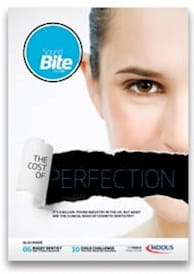HOW things have changed! We hear that a lot, and mainly from people who are sliding into middle age (albeit resisting it all the way).
When I was young, many years ago now, a night on the town meant meeting up with friends and having a few drinks while we got ready. Sound familiar? And it being the 1980s, we’d apply huge amounts of eye makeup, backcomb our hair and don ridiculous high heels for a night at the local disco.
What has really changed since my day is that, with the advent of social media, photos and videos of these kinds of nights out – as well as the aftermath of the morning-after – are increasingly being posted online. While this can be just a bit of fun for some people, the General Dental Council expects dentists to “maintain appropriate standards of personal behaviour in all walks of life so that patients have confidence in you and the public have confidence in the dental profession.”
These standards apply when you are both on and off-duty. As such, you should never underestimate the impact of what appears on sites like Facebook, Youtube, and twitter on your professional life. Years ago we may have behaved in a way that would make us blush at the memory, but that was it, just a memory. People seldom carried cameras and even then the hard copy prints would likely only be seen by a handful of friends. Nowadays, any indiscretions can be captured and posted online for the world to see within seconds.
It is now common practice for potential employers to trawl these sites to find out about the “real you”, so discovering photos of you doing something questionable could seriously harm your career prospects. Similarly, people you don’t know can often access your profile, including personal details and photos. There is little privacy with these sites, even when you think you are being very careful so be extremely cautious about what you post online. Even if you think only friends can see it, often information can be copied, forwarded or otherwise passed on.
The GDC has been consulting on a new guidance document, Standards of Conduct, Performance and Ethics, which will include advice sheets on topics such as social networking. The consultation document published in October offers a cautionary message: “There is some evidence from our fitness to practise cases that the number of allegations relating to social networking, personal behaviour, convictions and failure to co-operate are increasing”. So, as much as you’d like to think otherwise, your private life does impact your professional life.
As a practising dentist, you might wonder if it’s ever okay to “friend” a patient on social networking sites? The simple, safe answer is no. Patients come to see you for healthcare and for quality dentistry. For that professional relationship to flourish, it’s probably best they haven’t seen you dressed up for a night out, drunk or worst of all dancing. You must maintain professional boundaries with patients and engaging with them online runs the risk of falling foul of the GDC.
Sites like Facebook, twitter, blogs or chat rooms can also be a tempting forum for stressed dentists to let off steam. The job of a dentist is not always an easy one and years ago those looking to vent frustrations may have done so by talking to a colleague or by taking the time and trouble to put pen to paper to write a letter to a newspaper or magazine. And likely by the time you had sealed the envelope and gone to buy a stamp the mist will have cleared and the angry missive would end up in the bin.
Not so these days where our views can be posted online in rapid fire debate for all to see at the click of a mouse. Little wonder then that some come to regret what they have posted not long afterwards. And once it’s there, it’s very hard to get rid of. Even deleted posts can remain as cached information on search engines and sites years later, leaving you to deal with an ill-considered remark for far longer than you anticipated.
MDDUS has dealt with numerous cases where members have run into professional difficulties by posting derogatory comments about colleagues or patients online. Not only are rude comments about patients likely to call into question your professionalism, they are also very likely to breach strict rules on patient confidentiality. Even if you refer to patients anonymously, you are heading for trouble.
So remember, being a dentist is not just a nine-to-five role. The public and the GDC, rightly or wrongly, expect us always to act in a professional way. That doesn’t necessarily mean staying in and never having fun, but be careful about what appears online. Make sure your privacy settings are as strict as possible and don’t be tempted to “friend” patients. And while it’s fine to have an opinion about things, just be sure that you don’t offend anyone. In the words of that 80s music icon Phil Collins: “Oh, think twice”.
Claire Renton is a dental adviser at MDDUS
This page was correct at the time of publication. Any guidance is intended as general guidance for members only. If you are a member and need specific advice relating to your own circumstances, please contact one of our advisers.
Read more from this issue of Insight Primary

Save this article
Save this article to a list of favourite articles which members can access in their account.
Save to library